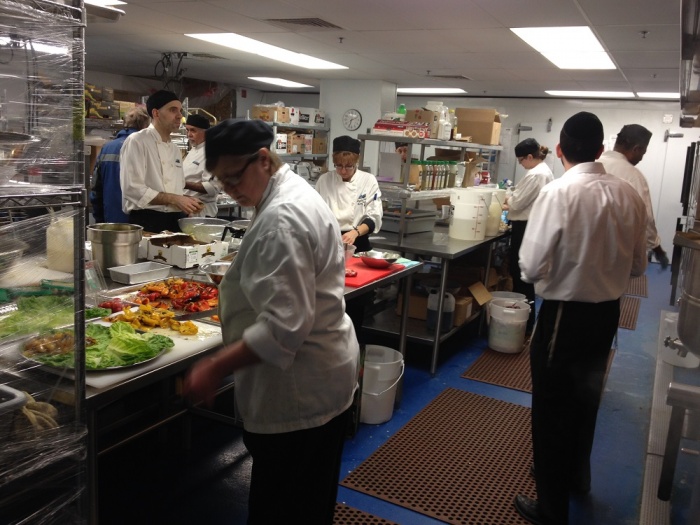By Richard Rabkin
A couple of years ago I was invited to an event and was assured by the person extending the invitation that it was kosher. That’s a workplace hazard I guess – seeing as though I work at the Kashruth Council of Canada (COR), people become more conscious of the kosher situation when I am involved. Playing to the stereotype I asked my friend who the caterer was and sure enough the food was being provided by a COR supervised kosher caterer. I then asked, “Would you happen to know if the event is a ‘supervised event’?”
Silence.
“You know, will a mashgiach be present?”
Silence again.
Then, “But if the food is kosher, isn’t that enough?”
Excellent question and one that is often misunderstood.
Just like the government has health inspectors who visit restaurants to ensure compliance with the government’s health and safety standards, in simple terms, a mashgiach or a kosher supervisor, ensures that an establishment, caterer or event is in compliance with kosher standards.
COR certified kosher caterers typically cook in their own kitchens (called commissaries) where they have an onsite mashgiach who ensures that kosher standards are being complied with. But what happens when a caterer delivers food to an offsite event, such as a hotel, museum or other venue? If the event organizer has requested that this be a “supervised event” it means that a COR mashgiach will be present at the event and will for example, be responsible for making sure that the kosher food is not reheated with non kosher equipment, served on non kosher dishes, or that no non kosher beverages or food are brought into the event. At “supervised events” COR certificates will be placed at the entrance of the event so guests will know that the event is under COR supervision. If there is no mashgiach present however, there is no one overseeing the event’s kosher program. That means that non kosher dishes may have been used, that the food may have been reheated with non kosher equipment or that non kosher food or beverages may also be present at the event. This is what we call an “unsupervised event.”
After I provided this explanation to my friend, he accepted it readily and then asked, “So why would COR allow its caterers perform unsupervised events?”
Another excellent question!
The simple answer is that there is a need for them. For example, when someone has a private event in her own home and she wants to have it catered but wants to serve the food on her dishes or she wants to add a few desserts that she has cooked herself, COR obviously cannot certify that event – unless the hostess wants to have the mashgiach with her in her home at 11 O’clock at night while she’s making that chocolate soufflé, although I am guessing she doesn’t. But we feel that people should have the ability to host such events and have them catered.
But when the scale of these events become larger, for example, if they are being held at an offsite venue which also has non kosher facilities, kosher consumers should understandably exercise a great deal of caution.
An easy way to remember the difference is the following adage, “unsupervised is uncertain.”
In order to verify that you are attending a supervised event, you can look for the COR certificates at the entrance of the event. Alternatively, you can check in advance by contacting the COR office at 416 635-9550 or info@cor.ca.
In the end, the event that I was invited to was indeed a supervised event and I was able to eat happily alongside the rest of the guests. As for my friend, not only did he learn something new, but he got to speak with me for much longer than he had anticipated. It was his lucky day!
This article originally appeared in the Jewish Tribune

